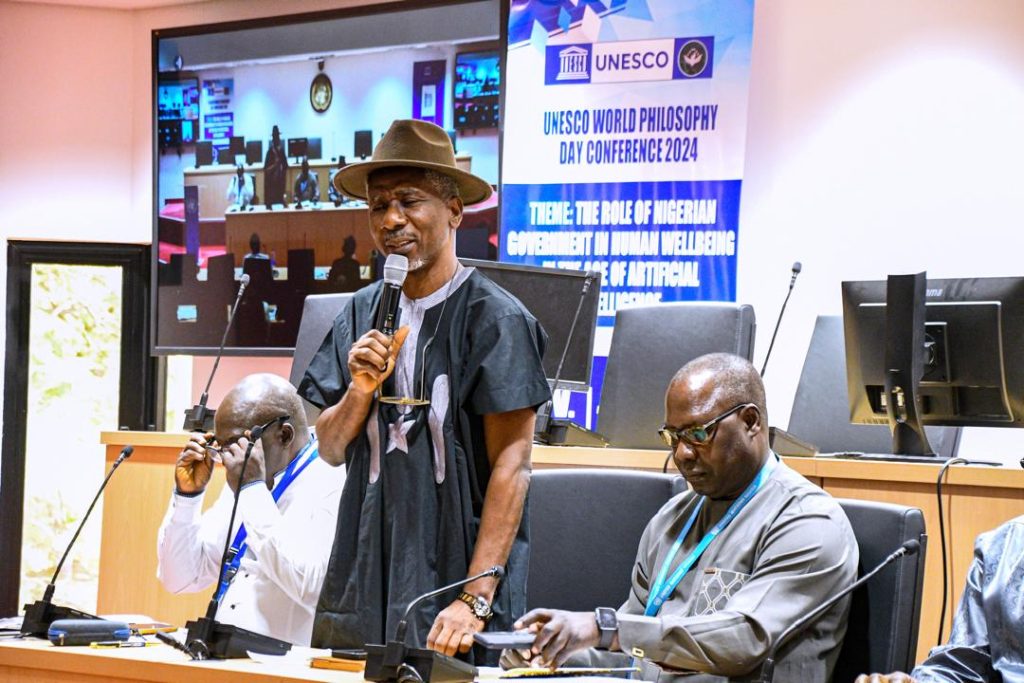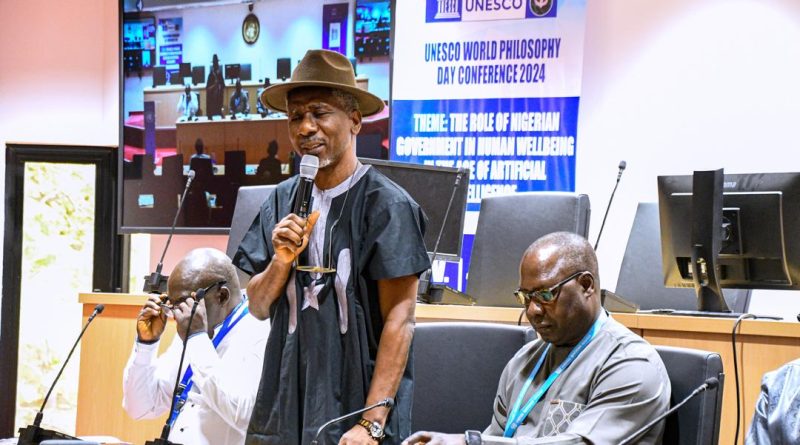UNESCO Urges Philosophers To Provide Ethical Guidance For AI And Ensures It’s Beneficial To Man
By Bukar BOLORI
The United Nations Educational, Scientific and Cultural Organisation (UNESCO) has called on contemporary philosophers to provide ethical guidance that ensures that Artificial Intelligence (AI) and the transformations it provided are well-regulated and beneficial to human wellbeing.

The call was made on Thursday in Abujaat the celebration of 2024 World Philosophy Day with the theme: “The Role of the Nigerian Government in Human Wellbeing in the Age of Artificial Intelligence.”
Speaking at the occasion, the Head of Abuja Office and UNESCO Representative to Nigeria, Abdourahamane Diallo, said the expected responsibilities of—many of whom are present in this room—is to provide ethical guidance that ensures these transformations of AI are well-regulated and beneficial to human wellbeing.
He added that: “Today’s celebration also provides an opportunity to reflect on current global needs and how philosophers can leverage their expertise to create a moral compass for addressing these needs.“
He noted that UNESCO has consistently provided platforms for such critical reflections. Working with its 191 Member States and teams of philosophers, UNESCO has developed recommendations on the Ethics of Artificial Intelligence to ensure that AI actors prioritize social justice, fairness, non-discrimination, and inclusion.
He said: “To complement these recommendations and facilitate their implementation, UNESCO also developed the Readiness Assessment Methodology (RAM) tool. This diagnostic tool helps countries assess their capacity to ensure an ethical and responsible AI ecosystem. It is my pleasure to inform you that Nigeria is among the few countries implementing this groundbreaking tool.”
Diallo said: “I hope that today’s conversations and brainstorming sessions, guided by the event’s theme, will provide in-depth insights into how AI can be regulated in Nigeria to secure human wellbeing, particularly by addressing the ethical considerations necessary for policy ideas emanating from the RAM implementation.”
On her part, the Acting Vice Chancellor of University of Abuja, Professor Aisha Sani Maikudi said: “Artificial intelligence represents a formidable force that is reshaping every facet of our lives—from how we work and learn, to how we receive healthcare and communicate with each other. As AI algorithms permeate industries and begin to make decisions traditionally reserved for humans, it is essential to ask: What does this mean for human well-being, particularly in Nigeria? How can our government harness the potential of AI in a way that aligns with our society’s core values, addresses our unique challenges, and supports our collective vision for human flourishing?”
She noted that: “The philosopher Aristotle taught us that true well-being, or “eudaimonia,” transcends mere survival; it entails leading a life of purpose, dignity, and fulfillment. In the age of AI, this classical ideal faces new obstacles and complexities. The Nigerian government, like those of other nations, is tasked with balancing the promises of AI advancements with the protection of citizens’ rights, well-being, and socioeconomic stability.”
The VC who was represented by the Deputy Vice Chancellor – Administration, Prof. Philip Afaha, said the challenges and responsibilities of government include policy and ethical governance of AI, education and digital literacy, healthcare and social welfare , data sovereignty and privacy protection, addressing economic inequality and job displacement and upholding human-centered values.
She added that: “As we navigate the complexities of the AI age, let us remember that technology should not drive humanity; rather, humanity should guide technology. The Nigerian government, as a steward of human well-being, must be visionary, ethical, and resolute in promoting a future where AI serves to uplift all citizens, support equitable development, and foster a society in which every Nigerian can achieve their highest potential.
“In this endeavor, we must be both vigilant and hopeful, embracing AI as a tool for good while upholding the moral responsibility to protect our citizens’ dignity and well-being. This is a profound opportunity to shape a future that reflects the best of human values, creativity, and compassion.”




